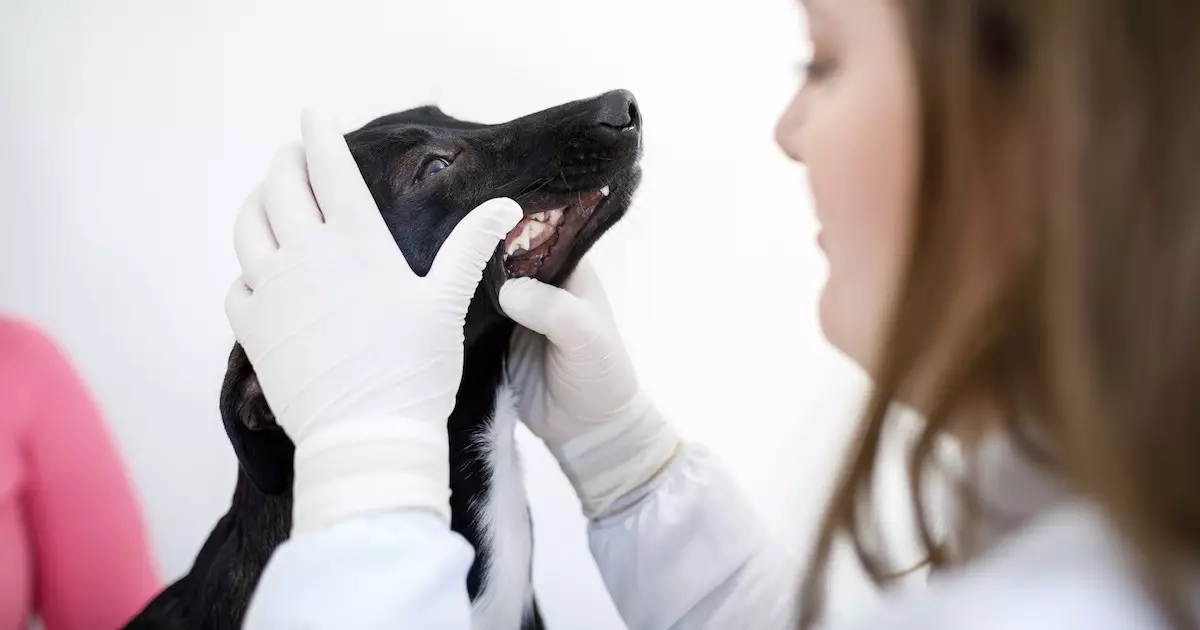Persistent deciduous teeth, commonly referred to as retained baby teeth, are a dental condition that can affect young dogs during their early developmental stages. This phenomenon occurs when adult teeth begin to emerge before the corresponding baby teeth have naturally fallen out. Under normal circumstances, puppies begin losing their baby teeth at about three months of age, making room for a full set of adult teeth, which total 42. The failure of baby teeth to exfoliate properly can lead to a host of dental complications that affect a dog’s health and quality of life.
The presence of persistent baby teeth can result in a myriad of dental issues. When adult teeth push through the gums while baby teeth remain in place, it can lead to misalignment, overcrowding, and other malocclusions. Symptoms can range from mild discomfort to significant pain and can impede a dog’s ability to chew properly. Common signs that a dog may be experiencing issues related to retained baby teeth include:
– Overbite or underbite conditions.
– Symptoms of gingivitis and periodontal disease.
– Difficulty in consuming food due to oral pain.
– Evidence of tooth decay and cavities, sometimes accompanied by pus if an infection is present.
– Residual food trapped between misaligned teeth.
A dog struggling with these signs may display behavioral changes, including reluctance to eat, excessive drooling, or even aggressive behavior when their mouth is touched.
Understanding why persistent deciduous teeth occur is essential for prevention and treatment. This condition generally results from a failure in the natural shedding process of baby teeth, which usually occurs between 14 and 30 weeks of age. Genetics can play a significant role in this dental anomaly; certain breeds, particularly smaller and brachycephalic dogs such as Poodles, Yorkshire Terriers, and Pugs, exhibit a greater predisposition to this issue. These breeds often have compact jaw structures that can complicate the natural eruption of teeth.
In addition to breed-specific tendencies, other contributing factors can include nutritional deficiencies during the developmental stages of a puppy’s life. This factor might impact the health of the gums and teeth, hindering their ability to shed gracefully.
If you notice signs indicative of retained baby teeth in your dog, it is crucial to seek veterinary care promptly. A veterinarian will typically conduct a thorough examination of your pet’s oral cavity to assess the alignment and health of both baby and adult teeth. X-rays are often employed to gain insight into the underlying dental structure, allowing veterinarians to determine which teeth are affected and how to proceed with treatment.
Treatment for persistent deciduous teeth mainly involves the extraction of the retained baby teeth. This surgical procedure is performed under general anesthesia to ensure the comfort and safety of the dog. In cases where the condition has caused significant jaw misalignment, it may also be necessary to remove additional adult teeth to facilitate proper alignment and functionality.
Post-operative recovery typically spans up to eight weeks, depending on the extent of the procedure and the dog’s overall health. During this time, pet owners must monitor their pets closely, as some may experience complications that affect their ability to eat, necessitating the use of a feeding tube until they can resume normal eating habits.
Early detection is paramount in preventing the complications associated with persistent deciduous teeth. Routine dental care, including regular inspections of your dog’s mouth and maintaining a stringent dental hygiene regimen, can significantly reduce the risk of such dental issues. Ensuring your puppy is receiving adequate nutrition to support healthy development is equally important.
By understanding the signs and seeking veterinary care at the first indication of dental distress, pet owners can help their dogs flourish with healthy and properly aligned teeth, ultimately enhancing their quality of life.


Leave a Reply